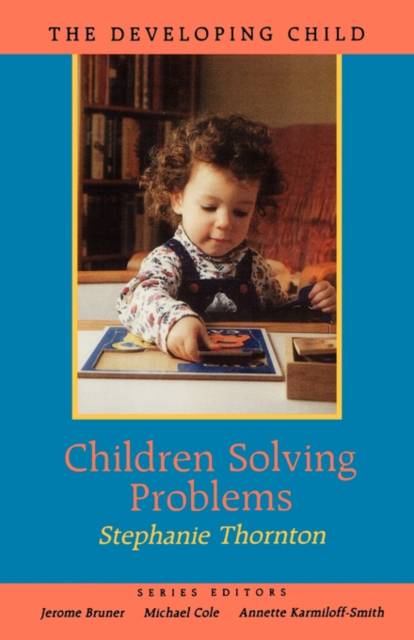
- Retrait gratuit dans votre magasin Club
- 7.000.000 titres dans notre catalogue
- Payer en toute sécurité
- Toujours un magasin près de chez vous
- Retrait gratuit dans votre magasin Club
- 7.000.000 titres dans notre catalogue
- Payer en toute sécurité
- Toujours un magasin près de chez vous
44,95 €
+ 89 points
Description
A one-year-old attempting to build a tower of blocks may bring the pile crashing down, yet her five-year-old sister accomplishes this task with ease. Why do young children have difficulty with problems that present no real challenge to older children? How do problem-solving skills develop? In Children Solving Problems, Stephanie Thornton surveys recent research from a broad range of perspectives in order to explore this important question.
What Thornton finds may come as a surprise: successful problem-solving depends less on how smart we are--or, as the pioneering psychologist Jean Piaget claimed, how advanced our skill in logical reasoning is--and more on the factual knowledge we acquire as we learn and interpret cues from the world around us. Problem-solving skills evolve through experience and dynamic interaction with a problem. But equally important--as the Russian psychologist L. S. Vygotsky proposed--is social interaction. Successful problem-solving is a social process. Sharing problem-solving tasks--with skilled adults and with other children--is vital to a child's growth in expertise and confidence. In problem-solving, confidence can be more important than skill. In a real sense, problem-solving lies at the heart of what we mean by intelligence. The ability to identify a goal, to work out how to achieve it, and to carry out that plan is the essence of every intelligent activity. Could it be, Thornton suggests, that problem-solving processes provide the fundamental machinery for cognitive development? In Children Solving Problems she synthesizes the dramatic insights and findings of post-Piagetian research and sets the agenda for the next stage in understanding the varied phenomena of children's problem-solving.Spécifications
Parties prenantes
- Auteur(s) :
- Editeur:
Contenu
- Nombre de pages :
- 154
- Langue:
- Anglais
- Collection :
- Tome:
- n° 32
Caractéristiques
- EAN:
- 9780674116245
- Date de parution :
- 14-07-98
- Format:
- Livre broché
- Format numérique:
- Trade paperback (VS)
- Dimensions :
- 133 mm x 207 mm
- Poids :
- 213 g







